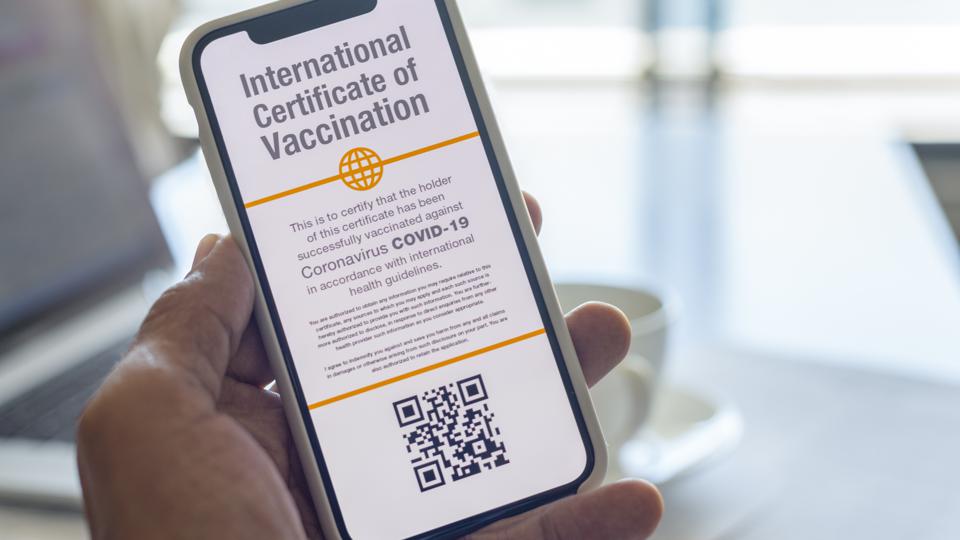Greece and Austria are urging other EU states to adopt a common Covid vaccination certificate, which could help revive Europe’s stricken tourist industry this summer.
In a virtual meeting EU leaders are also discussing how to speed up vaccinations. The EU’s slow vaccine rollout has been widely criticised.
Greece and Israel already have digital vaccination certificates.

But France and Germany are wary, as the data on infectiousness is incomplete.
There are also concerns that enabling a vaccinated minority to enjoy foreign travel while others continue to face restrictions would be seen by many as discriminatory.
A further complication is the rapid spread of more contagious Covid variants – the English, South African and Brazilian forms. So it is more likely that people will need booster jabs to remain protected.
Greek Deputy Prime Minister Akis Skertsos told the BBC that a common digital certificate “is not discriminatory at all”. He argued that non-vaccinated tourists could also visit Greece this summer, but the procedure for them would be slower – they would have to be tested and might have to self-isolate on arrival.

Greece and Cyprus have agreed to admit Covid-negative Israeli tourists this summer – those who can prove their status with the Israeli “green” digital certificate.
Greek Tourism Minister Harry Theocharis said a similar deal could be reached with the UK. However, the UK government has not yet approved any vaccination certificate, nor has it given the go-ahead for foreign holidays.
Greek tourism slumped disastrously last year because of the pandemic. Its revenues fell to €4bn (£3.5bn; $5bn), from €18bn in 2019, Reuters news agency reports. Tourism makes up about a fifth of the Greek economy, employing one in five workers.
Austrian Chancellor Sebastian Kurz tweeted that “we’re advocating a digital Green Pass, like Israel’s”.
“That should allow you to prove, on your mobile phone, that you’ve been tested, inoculated or have recovered [from Covid]. Our goal: to avoid a lengthy lockdown and finally enable freedom to travel again in the EU, and freedom to enjoy events and cuisine.”
As some EU countries now struggle with a third wave of the virus there are tensions over unilateral border restrictions. Germany is the latest to have received a complaint from the European Commission, since it imposed new police checks on the Czech and Austrian borders.
The Commission – the EU executive – has been under fire over its vaccine procurement strategy. It got into a row with AstraZeneca, because the Anglo-Swedish drug firm fell far short of the first-quarter delivery target.
The Commission still aims to get at least 70% of adults vaccinated in the bloc by mid-September. But so far, the total vaccinated is below 5%.